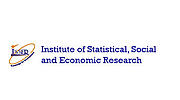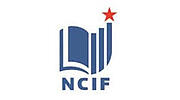
Research Group
International Trade and Investment
Globalization has dramatically changed the way economies work. Trade, international investment, and migration, in conjunction with rapid technological progress, have intensified the international division of labor whereby production is organized in global networks and supply chains. While globalization is commonly viewed as raising economic prosperity, it creates not only winners but losers as well—and also has unintended adverse side effects. Additionally, globalization has been characterized by a series of disruptions in the recent past (e.g., protectionist tendencies, Covid-19 pandemic, war in Ukraine).
Against this backdrop, the Research Group “International Trade and Investment” conducts research and provides policy advice on the causes and consequences of global value chains (GVCs). We examine the drivers of and barriers to global production and assess the gains and potential losses arising from GVC engagement of developed and developing economies. Our research has a strong policy focus and is primarily – but not exclusively – empirical in nature, using micro-level data sources.
An important part of our research addresses the new realities of GVCs by dealing with the challenges that recent disruptive shocks, a changing geopolitical environment and technological progress may pose to the global production networks of firms in advanced economies. We also reflect on the growing importance of cross-border flows of services and knowledge, aspects of international exchange that have received less attention in the past. To facilitate related empirical research, we are contributing to building a novel, large-scale micro database on German firms’ foreign trade and investment.
A further important area of our research has a development focus, as it studies the implications of GVC engagement in less developed countries. We are interested in the role that foreign trade, direct investment and external finance can play in promoting local economic development in developing regions. In this regard, we also evaluate the effectiveness of policies designed to facilitate this process, such as special economic zones. In doing so, we are collaborating with research institutions in a number of developing countries around the world. One region that is particularly important to us is the African continent, which is the subject of several of our ongoing research projects.


























